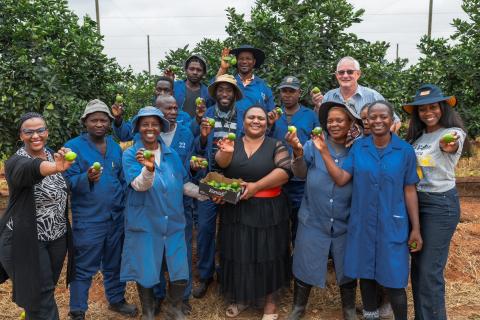
The 14th Road Safety Summit and Expo recently took place in Durban KwaZulu-Natal, an annual event aimed at reducing road deaths in South Africa through the support and collaboration of various road safety stakeholders.
This year’s summit was themed “Road Safety is Shared Responsibility” and brought together stakeholders from various organisations such as Transport departments, Municipalities, SAB and UNITAR.
As one of the speakers at the Summit, Director of Government Affairs and Stakeholder Relations at SAB Mduduzi Lokotfwako said, taking part in an event of this kind is important because “Investing in road safety is critical to SAB and always has been. We want to help ensure that our consumers, and the communities we serve are safe on the roads and that means applying greater pressure on those who make them dangerous.”
Speaking to SAB’s responsible drinking strategy, he said, “At SAB, we promote responsible driving and are committed to road safety. Through our work, we aim to reduce alcohol-related road accidents in hotspot areas.”
At this event, the South African Breweries (SAB) also announced its partnership with The United Nations Institute for Training and Research (UNITAR). Through this partnership Management Practices for Safer Roads Toolkit has been developed to help other institutions and authorities around the world apply proven best practice to curbing road fatalities.
As another SAB speaker at the Road Safety Summit, Corporate Affairs Specialist at SAB, Marcia Tembe-Mncwabe, adds that “This toolkit is an interactive e-learning tool that presents a management methodology and a road map that can help improve road safety. Through meaningful partnerships, we can continue making strides in road safety initiatives and successfully decrease road-related fatalities”
Tembe-Mncwabe also focused on how the Alcohol Evidence Centres (AECs) in South Africa impact road safety. “The AEC programme was established in 2009 and is the joint project with law enforcement to accelerate the prosecution of offenders,” Tembe-Mncwabe said. “The AECs are effective tools that help law enforcement curb the rate of fatal road accidents.”
These AECs have become a crucial in helping law enforcement test suspected drunk drivers and confirm their breath or blood alcohol limit using Evidentiary Breathalyser Alcohol Testing (EBAT) and registered medical practitioners. Following that, the AECs are all fully equipped to also ensure that the evidence is properly collected and admissible in court.
She hopes the AECs will continue having a positive impact on road safety. “By 2025, we will have 30% of drink drivers successfully prosecuted through the Alcohol Evidence Centres programme,” she adds.



